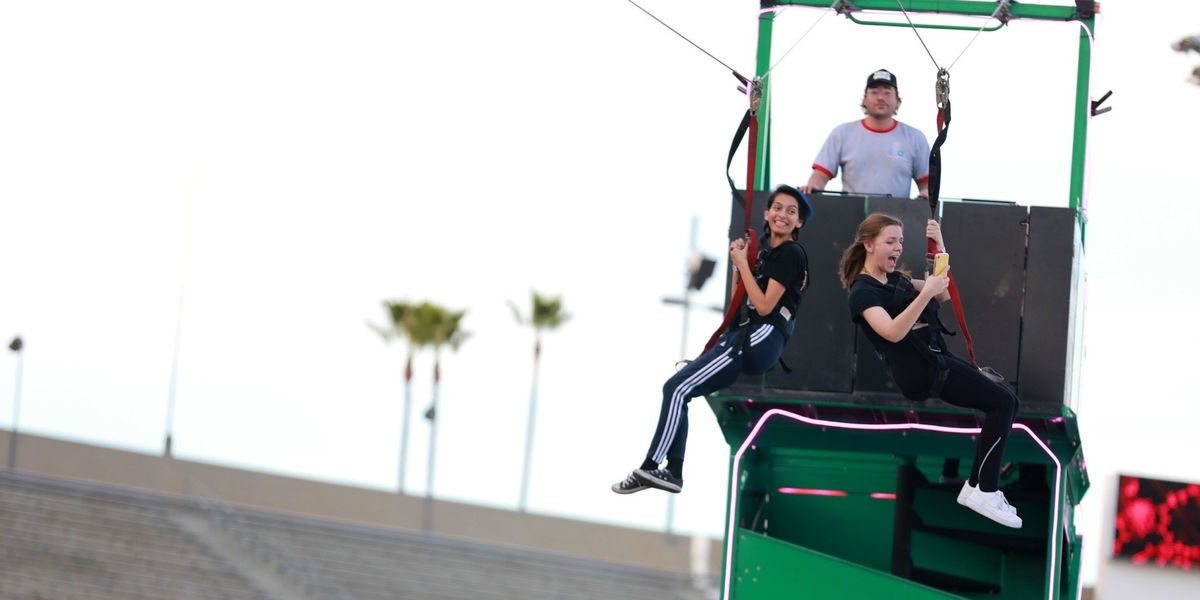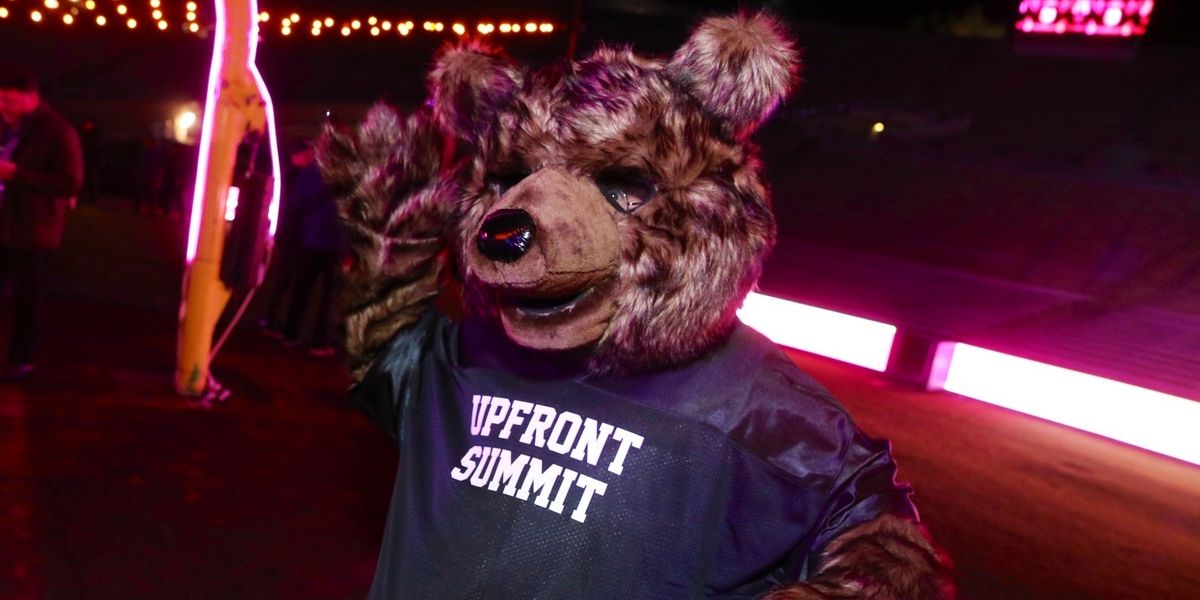Ballmer said he first got to know Bryant not through basketball but because of Bryant's interest in investing. He said he considers Bryant "one of the top players ever."
Ballmer, 63, bought the Clippers in 2014 after he stepped down from Microsoft, which he led as CEO from 2000-2014. With $60 billion in assets, Forbes ranks him as the 19th richest person in the world.
He was speaking on the first day of the Upfront Summit, an invitation-only gathering of venture capital investors that is being held at The Rose Bowl in Pasadena. The irony is that Microsoft is famous for building the software giant with very little VC money, part of the reason Ballmer and co-founder Bill Gates amassed among the richest fortunes on earth. Ballmer also doesn't invest in early stage companies or even individual equities, aside from his estimated $10 billion Microsoft stake.
"All we do is S&P [500] index funds," said Ballmer.
 Steve Ballmer spoke on the first day of the Upfront Summit, an invitation-only gathering of venture capital investors that is being held at The Rose Bowl in Pasadena. Photos by AirCam
Steve Ballmer spoke on the first day of the Upfront Summit, an invitation-only gathering of venture capital investors that is being held at The Rose Bowl in Pasadena. Photos by AirCam
One time when Ballmer would appear to have been less conservative is when he paid $2 billion for the Clippers, a sum most people saw as outlandish since the previous highest amount paid for an NBA franchise was $550 million (for the Milwaukee Bucks in 2014.) Ballmer said Wednesday he had been trying to buy an NBA team for a long time and he would have increased his offer if necessary.
"I had a boundary about how high it was going to go," Ballmer said. "I told the lawyer [for the Clippers] what that boundary was. I said 'don't take advantage of me.' The truth is I probably would have gone higher."
Since then, sports valuations have ballooned as the NBA struck a new $24 billion TV rights deal and the Clippers doubled their own local cable deal. The $2 billion purchase price has been vindicated and now Ballmer is focused on constructing a new 18,500 seat arena for the Clippers in Inglewood scheduled to open in 2024.
Ballmer said arenas are expensive – this one, like others in L.A., is privately financed and not receiving public subsidies. As a result, on a strictly financial basis, building the new stadium does not make sense. But he thinks it is vital to move away from the shadow of the Lakers.
"I feel sorry for the Chargers," Ballmer said, alluding to the fact that the NFL team will be a tenant in the massive new stadium Rams owner Stan Kroenke is building in Inglewood. "Everyone calls it Rams stadium."
Owning the Clippers and running Microsoft are not as different as it would appear, according to Ballmer.
Just as Microsoft would update its Windows operating system twice a year, the Clippers "update" their roster every summer through the draft and free agency. He also compared the talent in both situations.
"Engineers are treated very, very well," Ballmer said. "Basketball players are also treated very, very well."
Ballmer said he thought software was a less competitive industry than the NBA.
"What tech business do you know where you can have 30 competitors a year?" he asked, referring to the number of NBA teams. He added that L.A. is especially tough, because of the affinity for the Lakers.
"It's weird to have two teams in a market," he said.
The Upfront Summit is expected to attract more than 1,200 attendees flocking to the Rose Bowl Jan. 29-30. The invite-only event brings together a diverse mix of entrepreneurs networking with venture players armed with billions of dollars in capital, and headlined by presentations from business leaders including Ballmer, Quibi Chief Executive Meg Whitman, Union Square Ventures' Fred Wilson, and Idealab founder Bill Gross.
Links to the conference agenda and the livestream can be found here.
Upfront Ventures holds a non-controlling, minority interest in dot.LA





 Steve Ballmer spoke on the first day of the Upfront Summit, an invitation-only gathering of venture capital investors that is being held at The Rose Bowl in Pasadena. Photos by AirCam
Steve Ballmer spoke on the first day of the Upfront Summit, an invitation-only gathering of venture capital investors that is being held at The Rose Bowl in Pasadena. Photos by AirCam